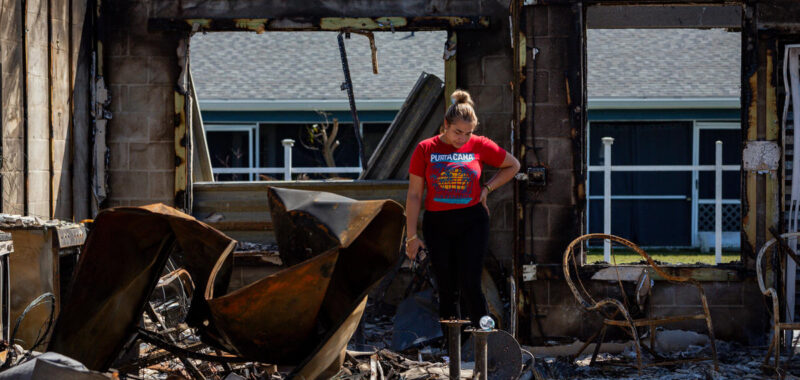AI is helping a philanthropic organization give $1,000 cash payments to Hurricanes Helene and Milton victims in North Carolina and Florida who need it most.
About 1,000 households in areas hit hardest by the hurricanes will start receiving emergency payments from nonprofit GiveDirectly this week. Unlike other forms of assistance, the cash funds are transferred rapidly and doled out with no strings attached.
GiveDirectly said it started sending payments to households it identified as being both low-income and located in parts of the U.S. that were devastated by the storms. It does so using a Google-developed AI tool to identify particular areas with both high concentrations of poverty and storm damage.
After identifying hardest-hit, low-income households, the nonprofit then alerts recipients at those addresses that they are eligible for the payments remotely through a smartphone app powered by Propel, an electronic benefits transfers app used to manage SNAP benefits.
“We use satellite imagery that shows us flooding and roof damage and we overlay that with data on high-poverty areas,” Dustin Palmer, who runs GiveDirectly’s U.S. programs, told CBS MoneyWatch. “We look for intersection of damage and areas that have high poverty as a community.”
The first payments are being disbursed Friday and through the weekend, and will be deposited through the Propel app’s virtual debit card.
The approach is designed to get cash to people who need it the most, as fast as possible.
GiveDirectly is raising funds for second round of aid
“$1,000 is a meaningful enough amount to help people get out of the house if they need to, and get supplies,” Palmer said. GiveDirectly is currently raising funds in order to administer another round of aid to hurricane victims.
He did note the limitations of relying on a smartphone and app to make the payments, but said the benefits trump the drawbacks.
“We are aware of limitations of that and we’re comfortable with the trade-off of having really high confidence that people are low-income and ready to receive the money right away. We are privileging that speed is of the essence in time of disaster,” Palmer said.
When the company administers larger, longer lead programs, it also offers in-person enrollment options that don’t require a mobile device, he added. Propel serves roughly 5 million of the 41 million people enrolled in SNAP benefits, or about one in four SNAP recipients.
Case for guaranteed income
West said one-time cash payments can be a huge help to families recovering from a disaster, but the money can make a more profound difference if it’s given for a sustained time.
Research on guaranteed income programs shows recipients spend the money on their needs, said Stacia West, founding director at the University of Pennsylvania’s Center for Guaranteed Income Research. “There is no one who can budget better than a person in poverty,” she said.
In a study tracking spending across 9,000 participants in more than 30 guaranteed income programs in the U.S., the Center for Guaranteed Income Research has found that the majority of the money is spent on retail goods, food and groceries and transportation.
GiveDirectly also plans to launch disaster preparedness programs in the U.S. to allow households to fortify their homes in anticipation of a hurricane, or evacuate, for example.
“With anticipatory action, we send money before a disaster. Giving people cash payments ahead of time lets people stock up on supplies to fortify their houses or move,” he explained. “It’s about being resilient to climate disasters.”
contributed to this report.

